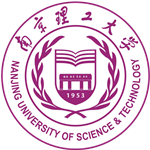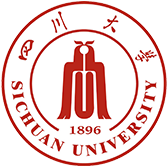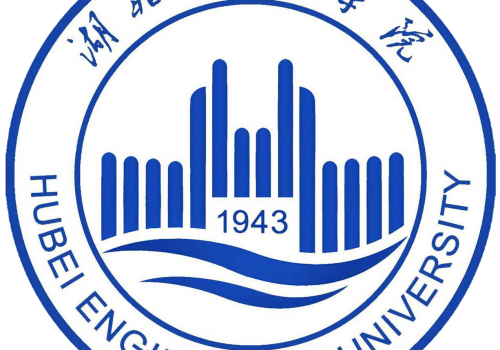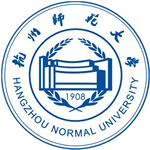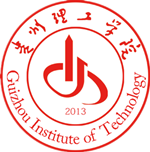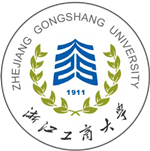About Nanjing University Of Science And Technology
Situated in Nanjing, the ancient capital of six dynasties in Chinese history, Nanjing University of Science and Technology (NJUST) was founded in 1953, and it is one of the seven universities affiliated to the Ministry of Industry and Information Technology. As a key university of “Project 211”and a member of the “Double First-class” construction universities and disciplines, NJUST ranks the 36th on the latest Academic Ranking of World Universities (ARWU) and the 41st among all the Chinese Universities on QS ranking. The university boasts 2 gorgeous scenic campuses: Nanjing Campus and Jiangyin Campus, covering an area of 288 hectares.
NJUST is home to a total of 20 schools, with an enrollment of more than 30,000 students, including around 800 international students. Furthermore, NJUST has more than 2000 full-time faculty members, of whom 20 are Academicians of Chinese Academy of Sciences or Chinese Academy of Engineering. NJUST have annual research funding which exceeds 1.5 Billion RMB.
At present, NJUST has 9 national key disciplines, 6 provincial first-level disciplines and 12 provincial key disciplines. The 6 disciplines of Engineering, Chemistry, Materials Science, Computer Science, Environment and ecology, physics have been listed among the top 1% of ESI and Engineering has entered 1‰. NJUST offers a diverse curriculum including such subjects as engineering, science, management, economics, humanities, law, education, and many more. NJUST carries out pioneering research in the fields of Advanced Materials, Applied Chemistry, Optical Engineering, Optoelectronic Information, Electromagnetic and Microwave Technology, Pattern Recognition and Intelligent System, etc.
NJUST has established cooperative relationships with more than 100 universities and institutions from 31 countries and regions, including UCLA, UCSB, McMaster University, University of Oxford, University of Coventry, University of Leuven, University of Lorrain, University of Stuttgart, Australian National University, University of Queensland, etc. Apart from pushing forward joint programs with these international partners from renowned educational establishments, NJUST has established the Sino-French Engineer School, which is a joint institution cultivating CTI certified tri-lingual engineers. NJUST also retains the Confucius Institute at the Gomel State University, Belarus, which is engaged in Sino-Belarus cultural exchange.
Campus Scenery
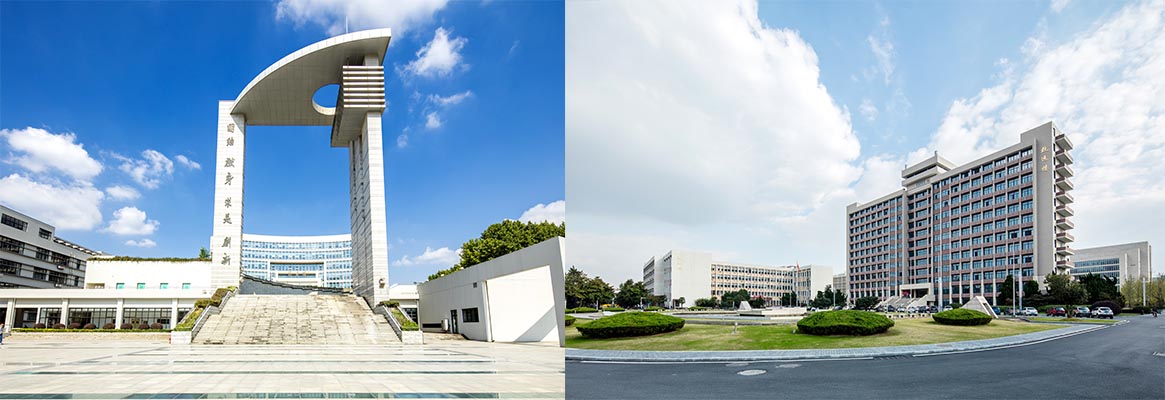
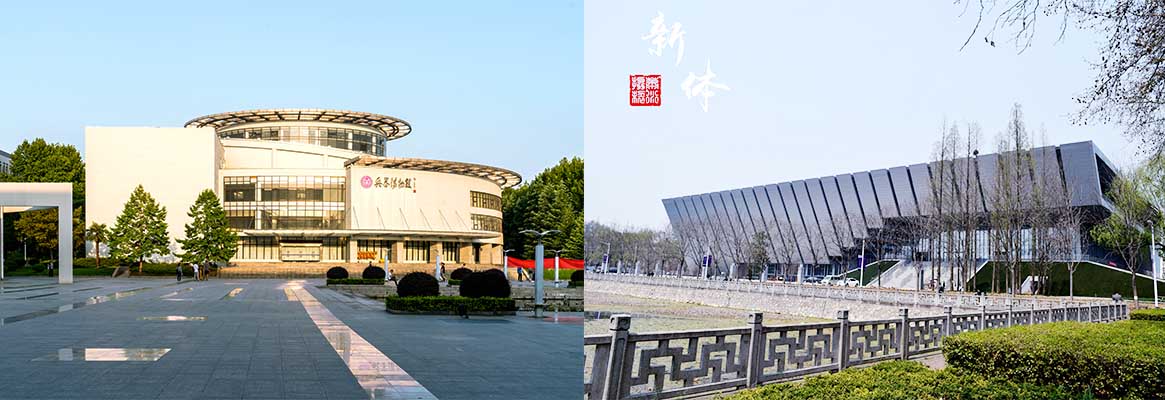
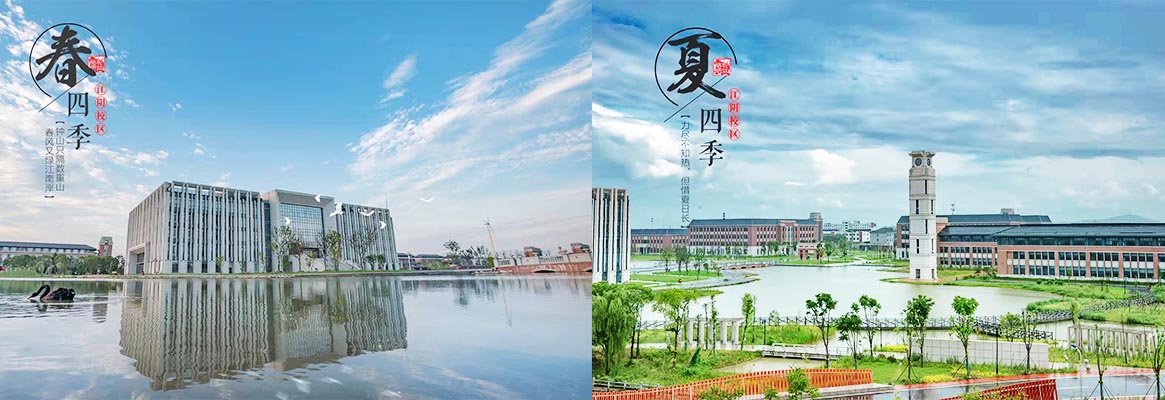
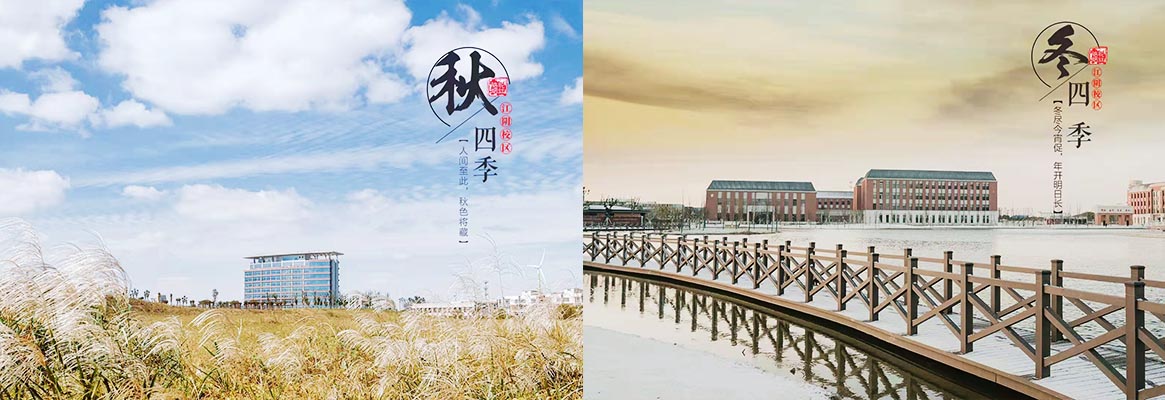
Learning and activities
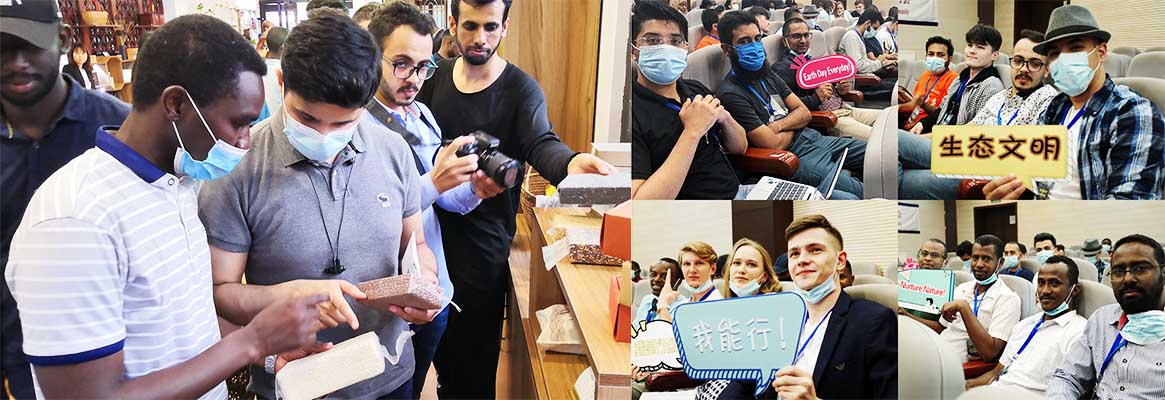
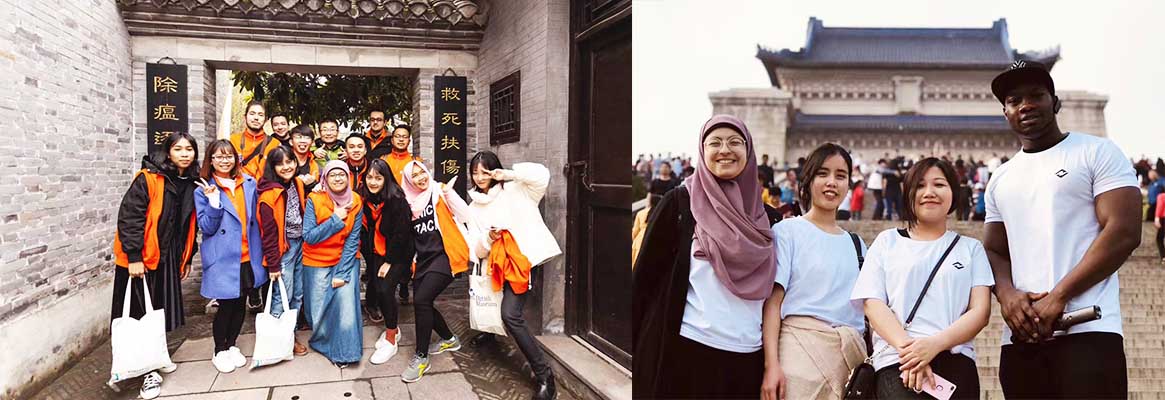
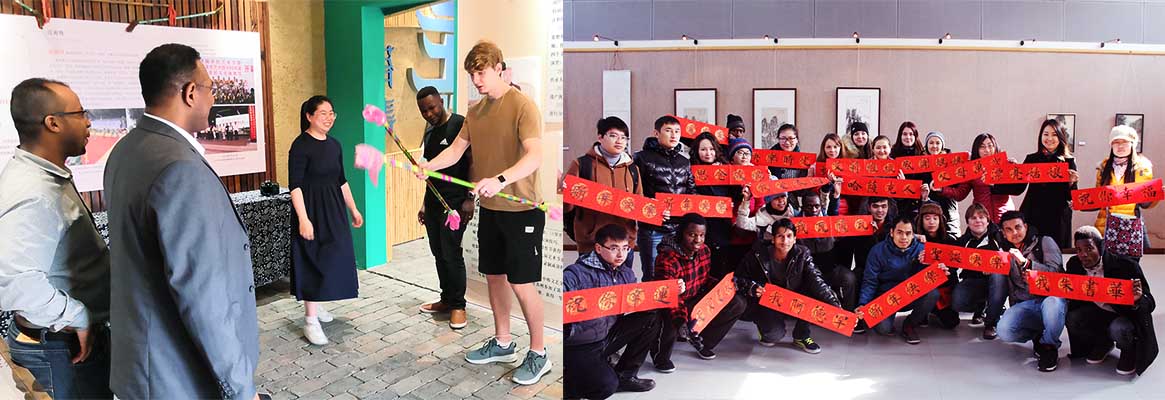

Accommodation conditions
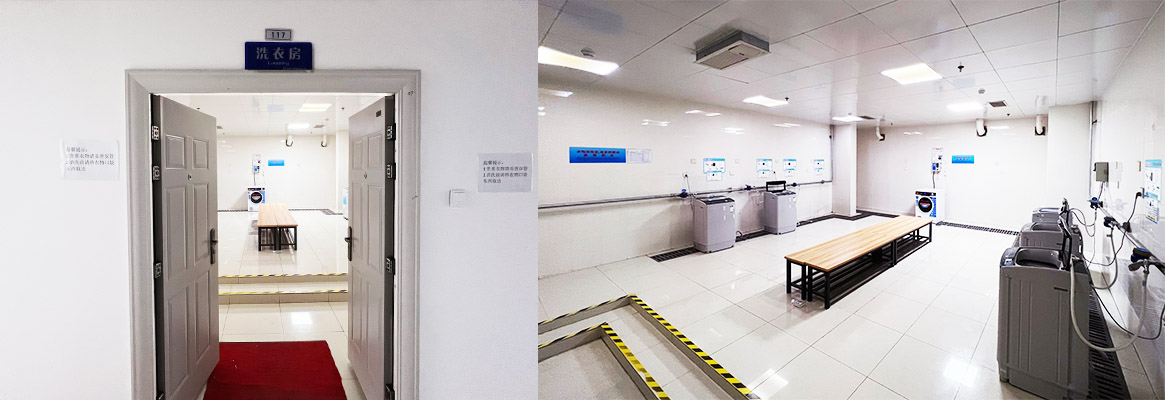
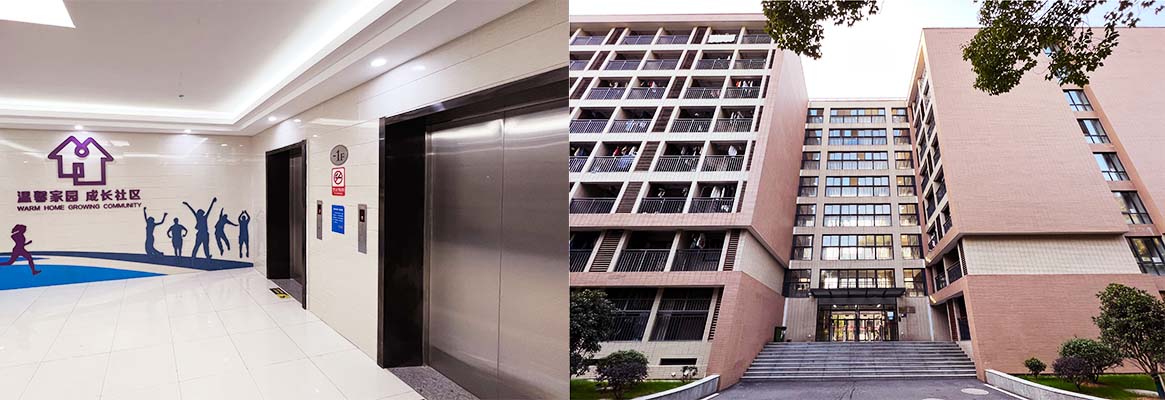
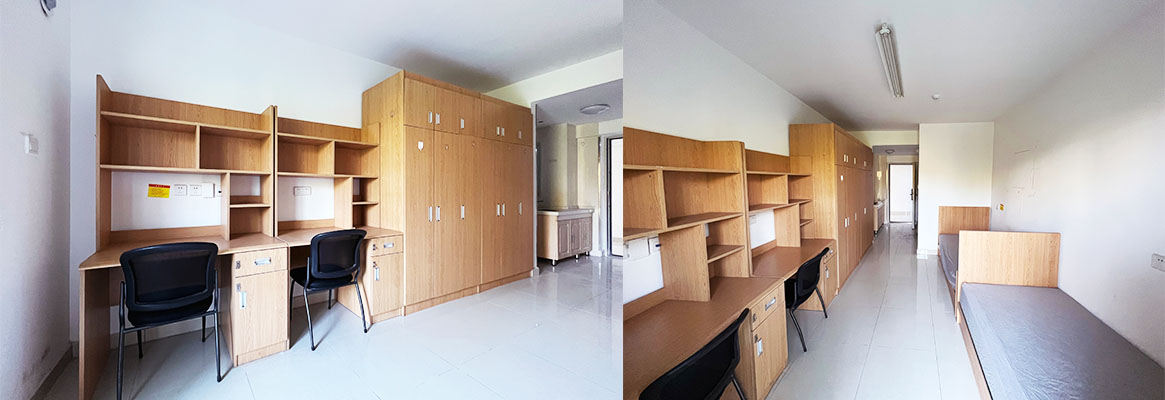
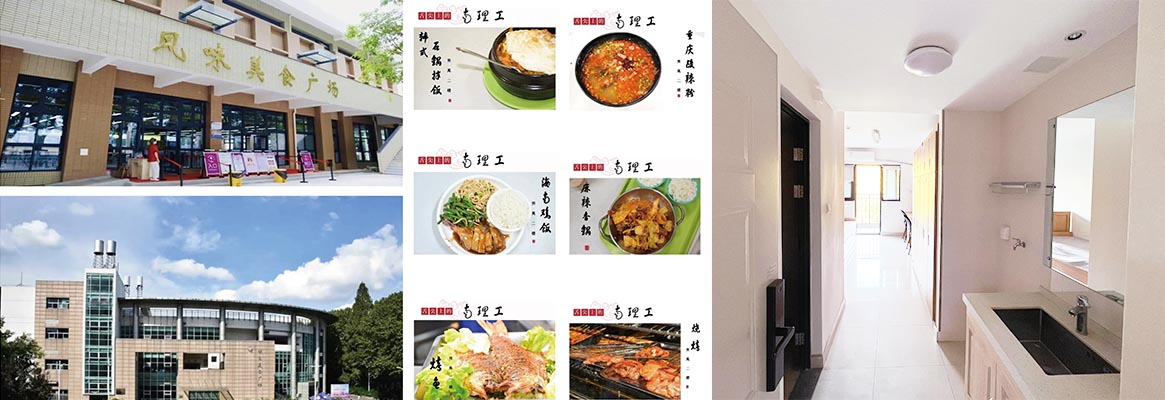
In order to promote the internationalization of education, Nanjing University of technology has successively established close cooperative relations with more than 100 overseas universities, including world-class universities, and carried out various exchanges and cooperation. With the approval of the Ministry of education, Nanjing University of technology has held a Sino foreign cooperative learning project with Carnegie Mellon University in the United States to train master’s students majoring in robotics, and more than 30 universities such as Munich University of technology in Germany Overseas well-known universities have signed joint talent training agreements, and more than 300 students are selected to study abroad for short-term exchange or study for degrees every year.
NUST attaches importance to scientific research cooperation with overseas high-level universities and scientific research institutions. It has successively established gelette nanotechnology research institute with Karlsruhe Institute of technology in Germany, and established joint research centers or laboratories with many universities and scientific research institutions such as Lille University of science and technology in France, UFA University of Aeronautical technology in Russia and gomeri National University in Belarus The university has carried out cooperative research, lectures and other academic exchange activities with more than 400 overseas experts and scholars.
As of April 2019, the university has built 13 international joint laboratories, 1 national level international joint research center, 1 demonstration national international science and technology cooperation base and 5 discipline innovation and talent introduction bases in Colleges and universities. It has held Sino foreign cooperative school running projects with Carnegie Mellon University in the United States and Coventry University in the United Kingdom, and jointly built the Sino French Institute of engineers with the National Institute of engineers in mace, France In, the University cooperated with Karlsruhe Institute of technology in Germany to establish gelet Institute of nanotechnology. The university built a Confucius Institute with Gomel University in Belarus. Focusing on the national military civilian integration development strategy, the University established Jiangsu military civilian integration research institute to promote the in-depth development of military civilian integration; accelerated the pace of industry university research cooperation, and established 8 off campus research institutes to play the role of national technology transfer centers Role, promote the transformation and application of major scientific and technological achievements, and serve the national and local economic and social development. Technologies such as reuse of waste explosives and explosives, civil blasting, preparation of special ultra-fine powder, intelligent deposition welding, robot intelligent welding, automatic seal authenticity identification system, etc. have filled the gaps in relevant fields and created huge economic and social benefits.
In 1994, NUST established the board of directors of NUST, which is composed of a number of government agencies, enterprises and institutions. The university has formed a deep-seated, long-term and stable cooperative relationship with the board of directors, mutual benefit and mutual support, realizing the mutual promotion and harmonious development of schools and enterprises. In order to broaden the channels of raising funds for running schools and gather the strength of all parties, the University was established in 2006 The education development foundation supports the school’s continuous pursuit of excellence in the fields of talent training, scientific research and social services; all sectors of society have established more than 60 awards and grants through the foundation to support the school’s continuous pursuit of excellence in the fields of talent training, scientific research and social services.
The Nanjing University of Science and Technology can be traced back to 1953, as Department of Artillery Engineering of Institute of Military Engineering of the PLA (People’s Liberation Army) in Harbin. Since its establishment, it aims on serving national strategies and promoting social progress. In 1962, the campus moved to Nanjing. The name of the university changed many times, and finally determined as current name in 1993. In September 1998, the name on the school badge was inscribed by Chinese President and General Secretary of the Communist Party Jiang Zemin.[3] Since June 2008, the Nanjing University of Science and Technology has been subordinated to the Ministry of Industry and Information Technology.
- 潘德炉, leading researcher of ocean color remote sensing in China, CAE member
- 李鸿志, CAE member
- Wang Zeshan, CAE member
- 刘怡昕, CAE member
- 陈志杰, CAE member
- Ren Xinmin, aerospace engineer and specialist in astronautics and liquid rocket engine technology, CAS member
- 邢球痕, solid rocket motor scientist, CAS member
- Lu Ke, material scientist, CAS member
- 崔向群, astronomer, CAS member
- 田禾, fine chemistry expert, CAS member
- 李应红, aeronautical propulsion theory and engineering expert, CAS member
- 芮筱亭, emission dynamics scientist, CAS member
- Lu Zhangong, Vice Chairman of the Chinese People’s Political Consultative Conference
The Nanjing University of Science and Technology is a multidisciplinary university, comprising academic fields including science, engineering, liberal arts, economics, business, management, law and education. In addition, it encompasses a wide array of centers, institutes, programs, and administrative support offices. It carries on its education and research on both undergraduate and postgraduate levels in 15 schools, led by a total of 70 undergraduate majors, 116 master programs and 49 doctoral programs, and 14 post-doctoral research stations.[citation needed]
NJUST is one of the Seven Sons of National Defence.

